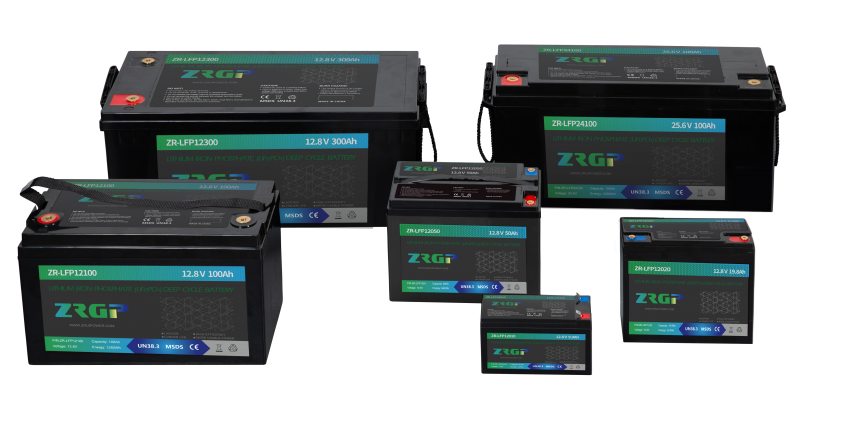Applications of Lithium-Ion Batteries in Grid-Scale Energy Storage Systems
In the realm of energy storage, lithium-ion batteries have emerged as a game-changer. These rechargeable batteries utilize lithium ions as the primary carrier of energy, offering significant advantages over traditional lead-acid batteries. As the demand for sustainable energy solutions continues to grow, the role of lithium-ion batteries in grid-scale energy storage systems becomes increasingly crucial.
Advantages of Lithium-Ion Batteries in Grid-Scale Energy Storage
High Energy Density
One of the key advantages of lithium-ion batteries is their high energy density. This means they can store large amounts of energy in a relatively compact space, making them ideal for grid-scale applications where space may be limited.
Long Cycle Life
Lithium-ion batteries also boast a long cycle life, meaning they can undergo numerous charge and discharge cycles without significant degradation. This longevity is essential for grid-scale energy storage systems, which require durable and reliable components.
Fast Response Time
Another benefit of lithium-ion batteries is their fast response time. They can rapidly charge and discharge, allowing them to respond quickly to fluctuations in demand or supply within the grid. This flexibility is invaluable for maintaining grid stability and reliability.
Applications of Lithium-Ion Batteries in Grid-Scale Energy Storage Systems
Stabilizing the Grid
Grid stability is paramount for ensuring a consistent and reliable power supply. Lithium-ion batteries play a crucial role in stabilizing the grid by providing instantaneous power when needed, thereby preventing blackouts and voltage fluctuations.
Peak Shaving
During periods of peak demand, such as hot summer days or cold winter nights, lithium-ion batteries can help alleviate strain on the grid by supplying stored energy to meet peak load requirements. This process, known as peak shaving, reduces the need for costly infrastructure upgrades and enhances overall grid efficiency.
Renewable Energy Integration
The intermittent nature of renewable energy sources like solar and wind presents challenges for grid operators. Lithium-ion batteries enable seamless integration of renewable energy by storing excess energy when generation exceeds demand and supplying stored energy during periods of low renewable output.
Backup Power
In the event of a grid outage or natural disaster, lithium-ion batteries serve as reliable backup power sources, ensuring continuity of essential services and minimizing disruption to businesses and households.
Grid Congestion Management
Grid congestion occurs when demand exceeds transmission capacity, leading to bottlenecks and potential grid failures. Lithium-ion batteries can help manage grid congestion by storing excess energy during off-peak periods and releasing it during times of high demand, thereby optimizing grid performance.
Frequency Regulation
Maintaining grid frequency within narrow tolerances is essential for ensuring stable and reliable power delivery. Lithium-ion batteries provide fast-acting frequency regulation capabilities, helping to stabilize the grid and prevent frequency deviations that can disrupt sensitive equipment.
The applications of lithium-ion batteries in grid-scale energy storage systems are diverse and far-reaching. From stabilizing the grid and integrating renewable energy to providing backup power and managing grid congestion, lithium-ion batteries play a vital role in shaping the future of energy storage and distribution. With continued innovation and investment, these versatile batteries are poised to drive the transition towards a more sustainable and resilient energy landscape.
Unique FAQs
- Are lithium-ion batteries safe for grid-scale applications?Yes, lithium-ion batteries undergo rigorous testing and safety protocols to ensure they meet stringent standards for grid-scale use. Advanced monitoring and control systems further enhance their safety and reliability.
- What are the environmental benefits of using lithium-ion batteries in energy storage?Lithium-ion batteries produce zero emissions during operation, making them environmentally friendly alternatives to fossil fuel-based generation. Additionally, their ability to store renewable energy helps reduce reliance on carbon-intensive sources.
- How do lithium-ion batteries compare to other energy storage technologies?Lithium-ion batteries offer several advantages over traditional energy storage technologies, including higher energy density, longer cycle life, and faster response times. However, the optimal choice of technology depends on specific application requirements and cost considerations.
- What role do government incentives and policies play in promoting the adoption of lithium-ion batteries for grid-scale energy storage?Government incentives, such as tax credits and grants, can help offset the upfront costs of deploying lithium-ion battery systems, making them more economically viable for utilities and grid operators. Additionally, supportive policies, such as renewable energy mandates and carbon pricing, create market incentives for investment in energy storage infrastructure.
- How can I learn more about incorporating lithium-ion batteries into my grid-scale energy storage projects?To learn more about the benefits and considerations of integrating lithium-ion batteries into grid-scale energy storage projects, consult with industry experts and explore case studies of successful deployments. Additionally, staying informed about the latest advancements in battery technology and regulatory developments can help inform decision-making and maximize the value of your investments.



